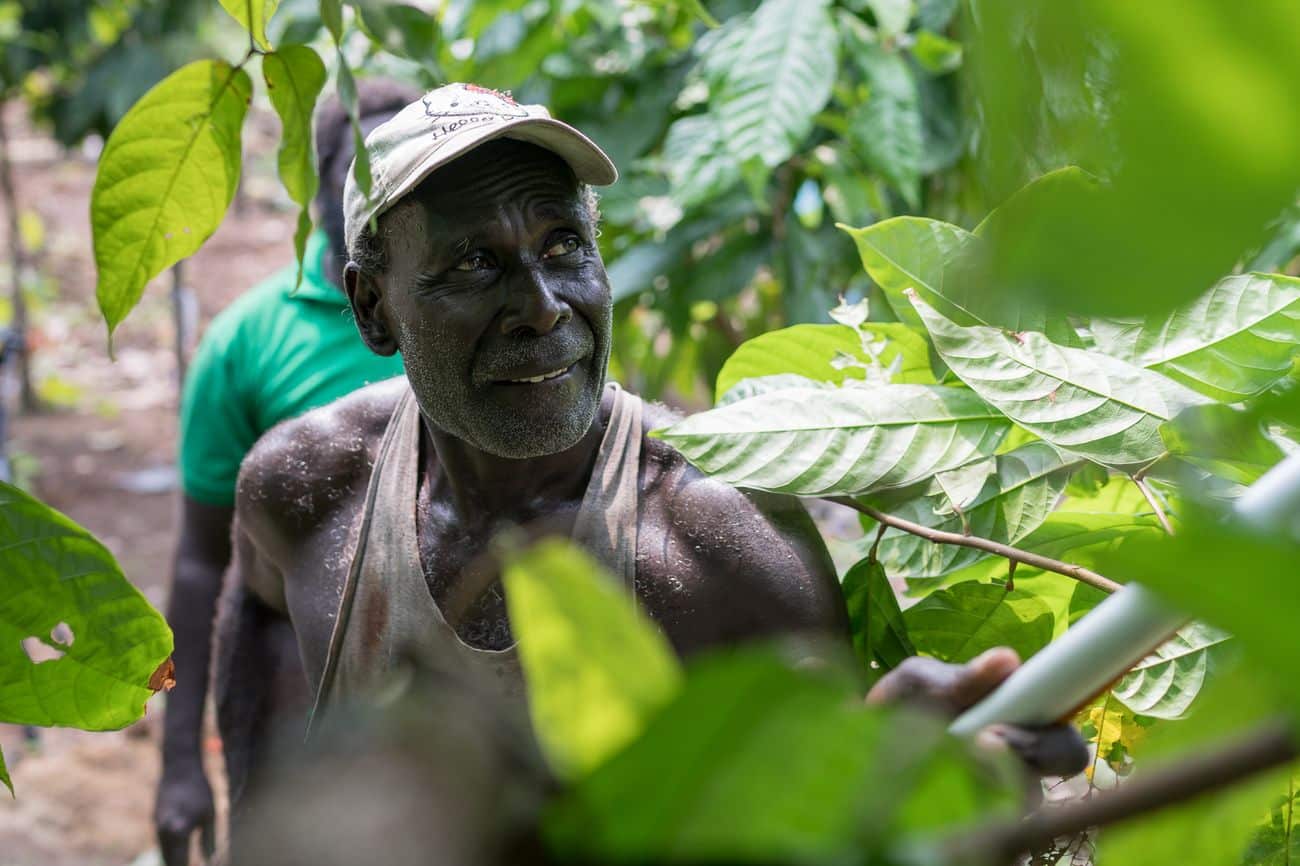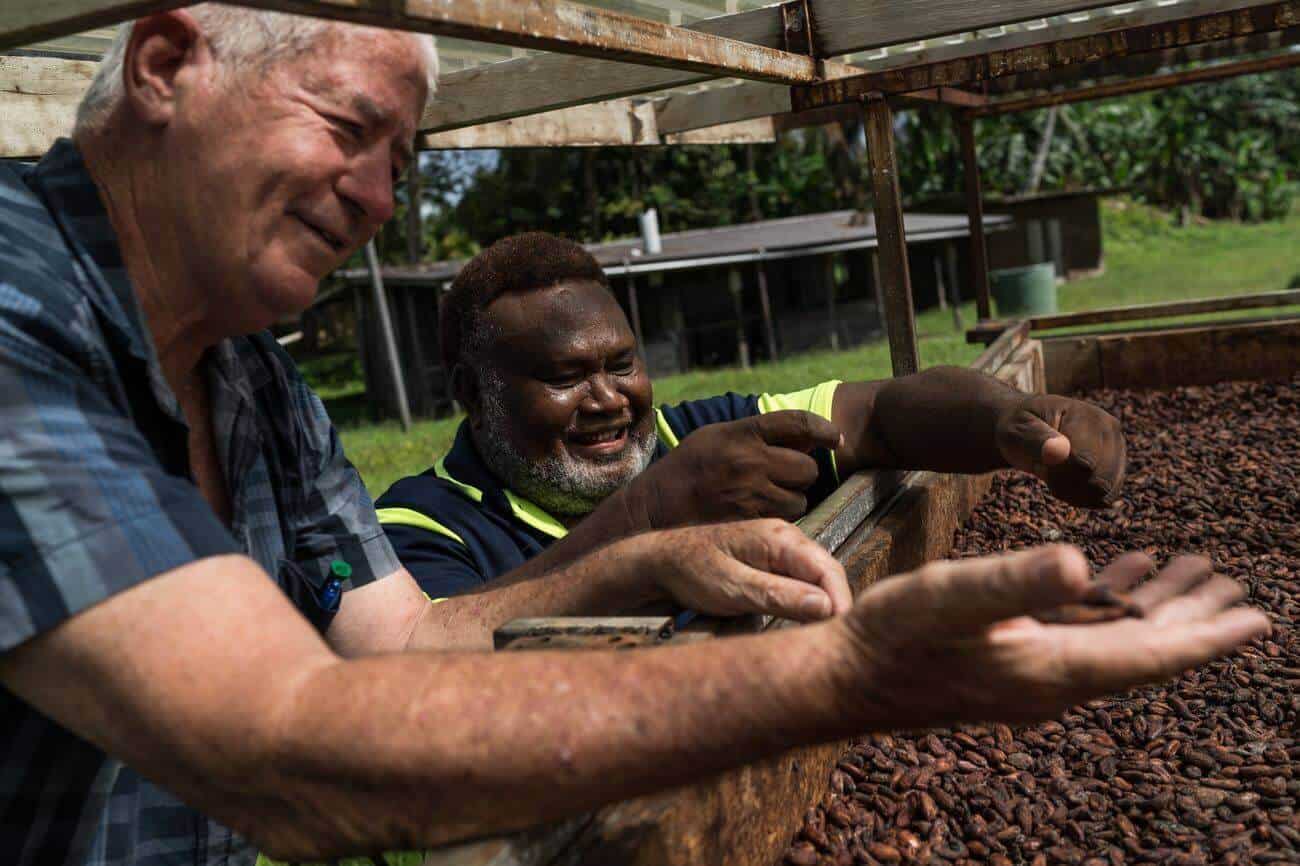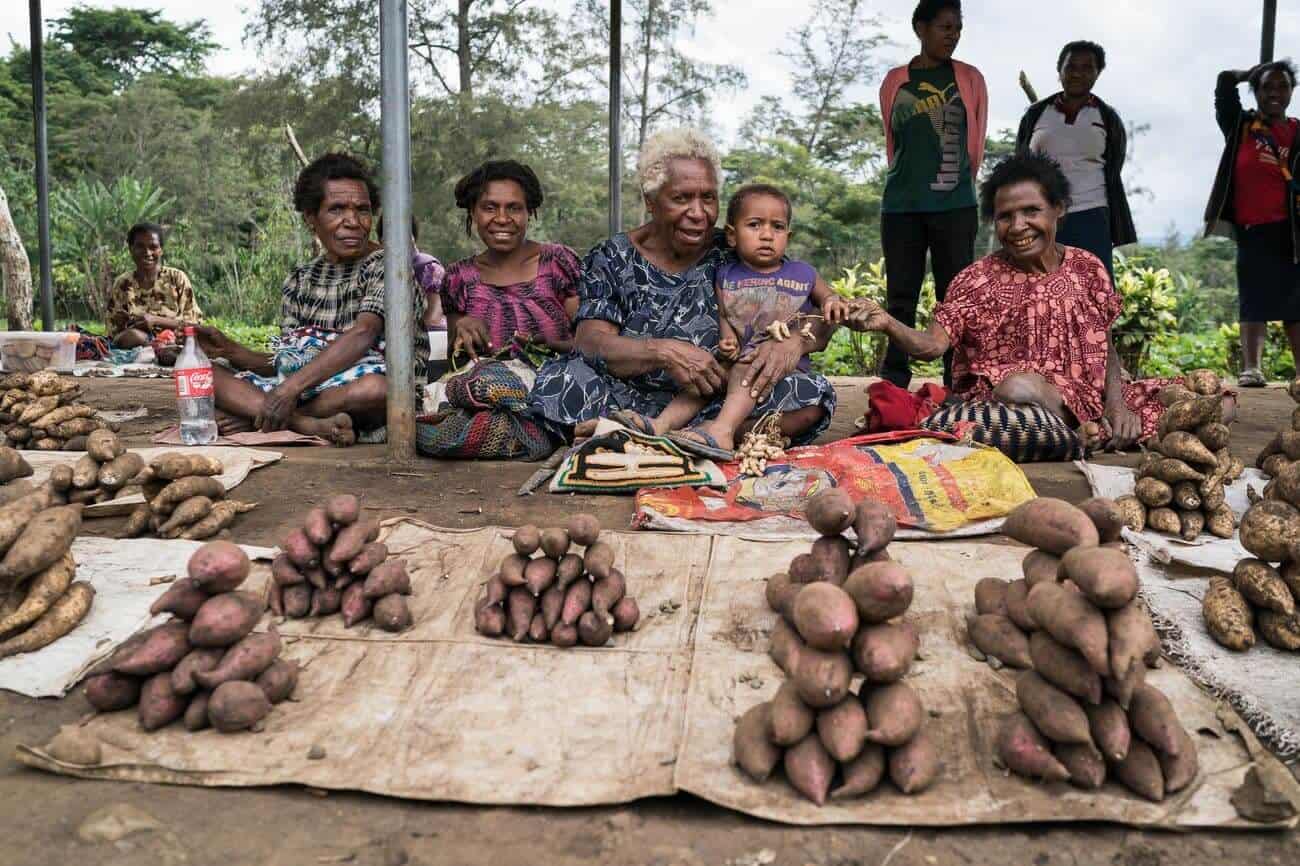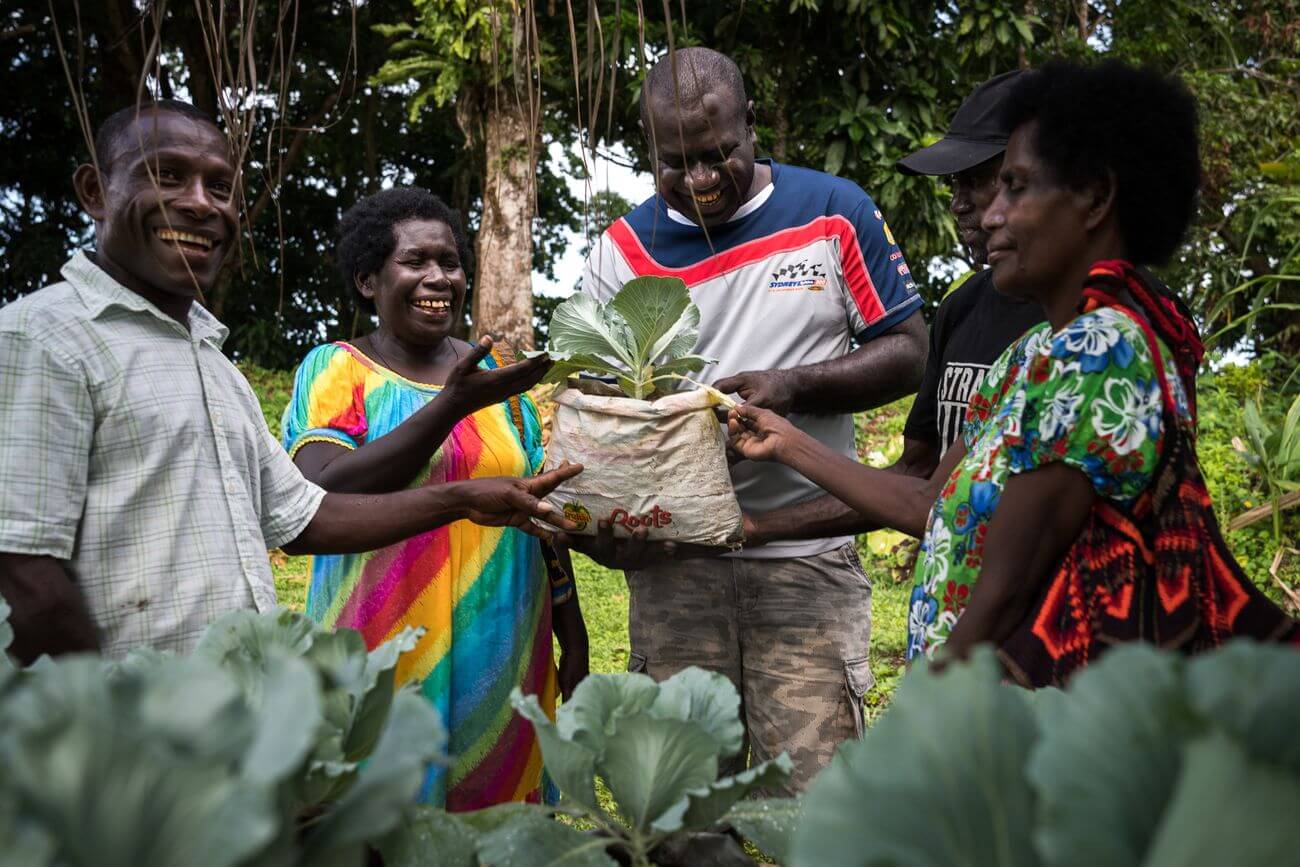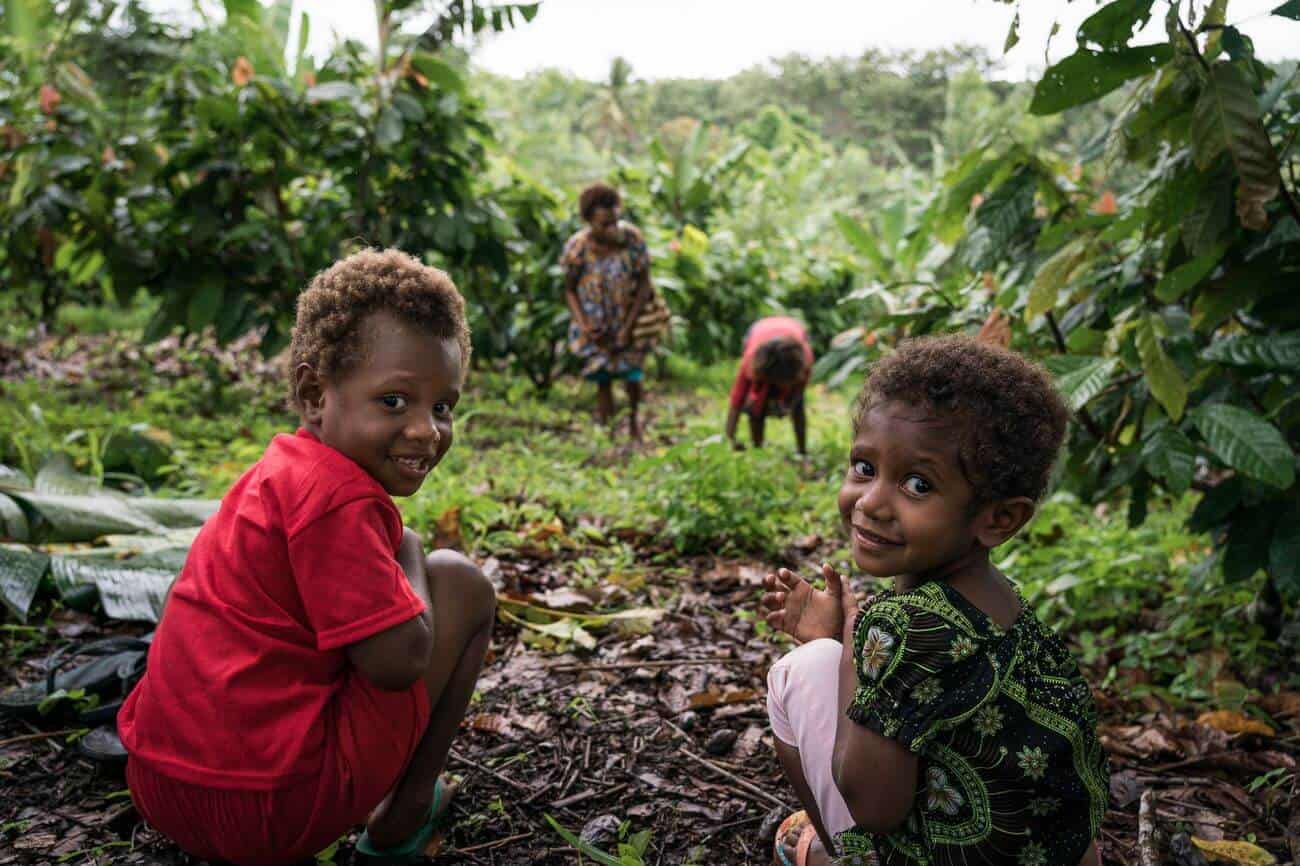Bougainville Cocoa
Projects
This project aimed to improve the profitability and vitality of smallholder cocoa farming families and communities in Papua New Guinea.
Bougainville is an autonomous province in Papua New Guinea recovering from a decade-long crisis that significantly disrupted the society and economy. Before the crisis, cocoa was a major contributor to the economy; more than 80% of Bougainvilleans produced cocoa.
PNG Cocoa
Projects
This project aimed to make smallholder cocoa enterprises in Papua New Guinea’s East Sepik, Madang, New Ireland and Chimbu Provinces more productive and profitable.
Cocoa is a profitable smallholder crop and export trade commodity in Papua New Guinea and drives rural development. 150,000 smallholder farming families grow cocoa, which accounts for 18% of agricultural exports. Old cocoa plantings have become overgrown, resulting in low yields, under-harvesting and heavy losses to pests and diseases, especially Phytophthora Pod Rot (Black Pod).
Sweetpotato
Projects
This project aimed to sustainably increase the contribution that sweetpotato makes to cash income and food security, by improving sweetpotato value chains. This intended to improve the livelihoods of sweetpotato producers and their communities in the highlands of Papua New Guinea.
Family Farm Teams
Projects
This project aimed to enhance the economic development of PNG women smallholders and their families. Most women farmers hope to improve their family livelihoods, but very few have the necessary agricultural and business acumen. Women smallholder farmers in Papua New Guinea grow essential subsistence crops while caring for their families. They are key to agricultural livelihoods, but face significant constraints. Many are educationally disadvantaged because they have not completed school and their access to training or extension services is limited.
Galip Nut
Projects
This project sought to expand markets and processing of canarium nuts in East New Britain, Papua New Guinea, by strengthening private sector capacity and engagement using nuts from existing trees. Canarium indicum is an agroforestry tree in Eastern Indonesia and the Pacific that produces edible nuts. Donor agencies have tried to commercialise the industry in Papua New Guinea and the Pacific.


